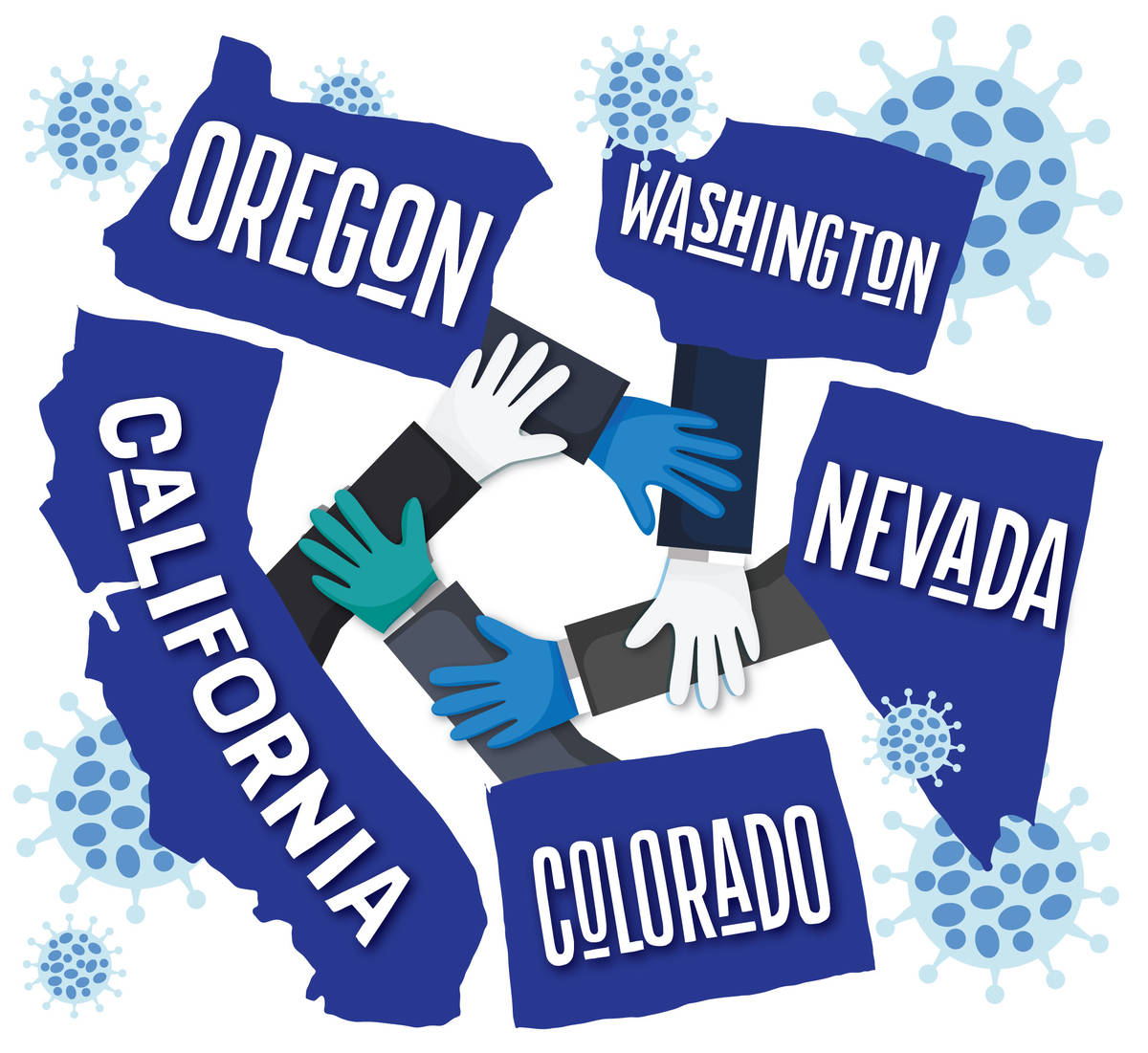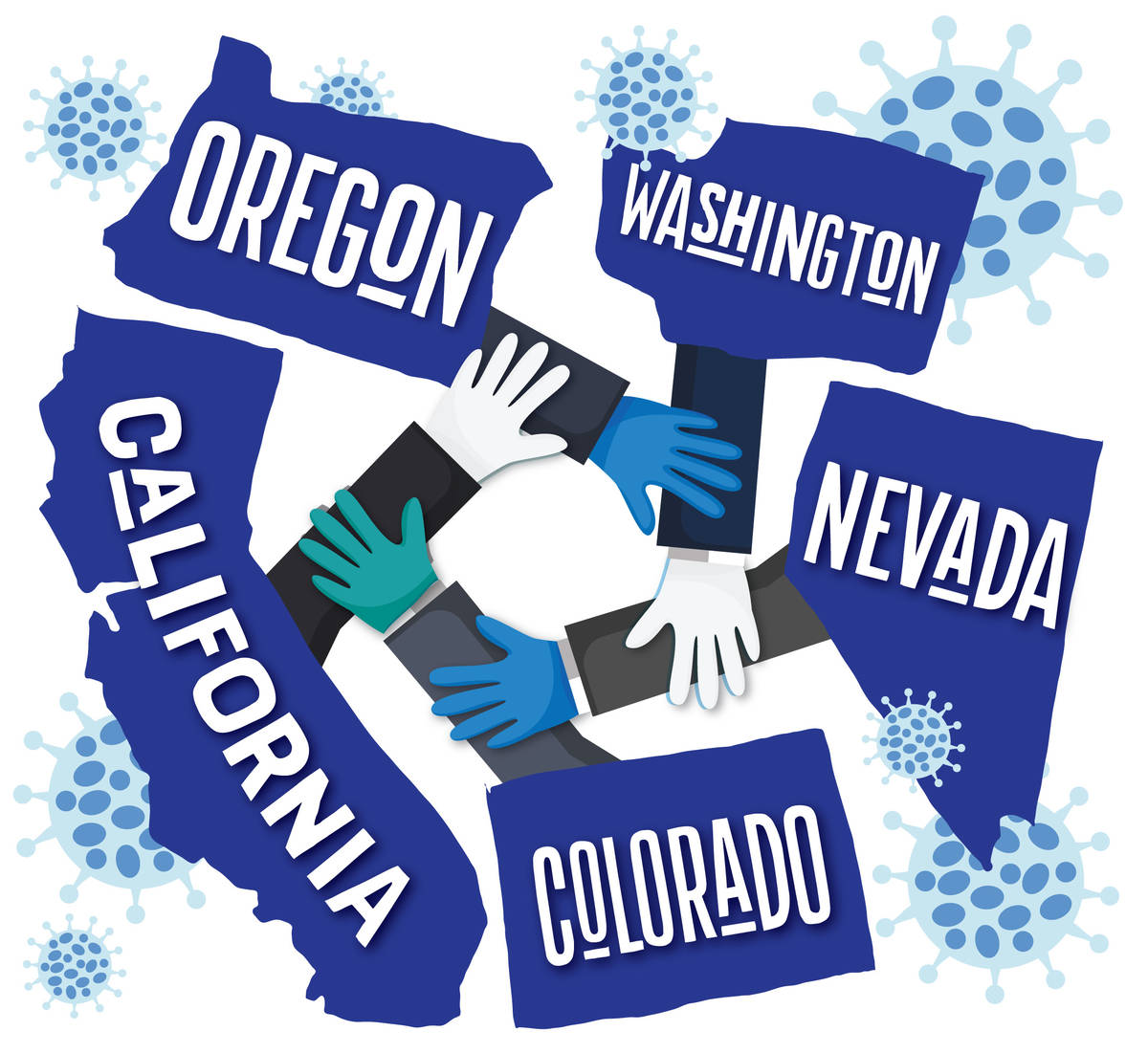Leaders of western states urge relief for states, municipalities
Leading political figures from California, Colorado, Nevada, Oregon and Washington sent a letter to the leaders of both houses of Congress urging federal budgetary assistance for states and cities who have suffered severe economic impacts from the COVID-19 pandemic.
“Our states are on the front line against the virus while at the same time leading our states’ recovery,” they wrote. “Each of us has seen first-hand how COVID-19 has caused a national recession that we are seeing play out in our states – resulting in a record amount of lost wages and business failures, spiraling unemployment and substantial, unplanned COVID-19-driven costs.”
The letter was addressed to Speaker of the House Nancy Pelosi, D-California, House Minority Leader Kevin McCarthy, R-Virginia, Senate Majority Leader Mitch McConnell, R-Kentucky, and Senate Minority Leader Chuck Schumer, D-New York. It was signed by governors and legislative leaders from the five states, who previously pledged to work together in battling COVID-19 and in reopening their economies.
“We deeply appreciated the quick financial assistance you provided workers, small business people and those who have been displaced by this crisis,” the letter continued. “But now, however, our states will be forced to make deep cuts to programs that help those same individuals without similar relief efforts for state and local governments. Even states that began the year in a strong fiscal position are facing staggering deficits amid growing costs of responding to the crisis.
“With unemployment projected to surpass that of the Great Recession, we are facing unprecedented and ongoing economic challenges.”
Drastic cuts to programs or dramatic layoffs of teachers, police officers, firefighters and other first responders are among the possibilities raised in the letter, which went on to note that the very programs that help people get back to work will be on the chopping block without assistance.
“That’s why we are respectfully, and urgently, requesting $1 trillion in direct and flexible relief to states and local governments,” the letter stated. “Though even this amount will not replace the decline in revenue that we forecast, it will make a meaningful difference in our ability to make up for COVID-19 revenue losses. It would help our states and cities come out of this crisis stronger and more resilient.”
“The cost of responding to the COVID-19 public health crisis, and the subsequent impacts to our economy, have been devastating, and it is critical that the federal government provide additional support and flexible relief to the state of Nevada and our local governments,” Gov. Steve Sisolak said. “The states have been on the front line fighting this virus, and we need the federal government to provide this aid to help us preserve core services like public health, public safety and public education. I want to thank Nevada’s federal delegation for their tireless advocacy for this funding, and I look forward to continue working with them and the Western States Pact as we seek additional support.”
Noting that red and blue states are facing the same issues, as are Democratic and Republican governors across the states, the letter stated “unprecedented partnership” is required to meet the crisis.
“We urge you to take swift action to help states and local governments provide core government services for American families,” the letter concluded.
Sisolak declares fiscal state of emergency
Gov. Steve Sisolak on Monday declared a state of fiscal emergency arising from the strain the COVID-19 pandemic has put on public services in Nevada.
The global economic fallout of the COVID-19 pandemic is disrupting commerce and negatively affecting revenues across the country.
At this time, Nevada is estimating a significant shortfall of State General Fund revenue with joint estimates from the Governor's Finance Office and Legislative Counsel Bureau-Fiscal Division ranging from $741 million to $911 million for the fiscal year ending on June 30, 2020, which includes a projected shortfall in the State Distributive School Account as well. As expected, the revenues most significantly affected are gaming and sales tax.
"With the closure of Nevada businesses, including the gaming industry, that was necessary to protect the health of Nevadans, the drop in revenue is not unexpected and it is significant," Sisolak said. "While we appreciate the additional assistance from the federal government to help address the immediate funding needs for the public health crisis, the state is now in a position where will be forced to make very difficult decisions."
The declaration of a fiscal emergency gives the governor and the Interim Finance Committee authority to transfer money from the Account to Stabilize the Operation of the State Government – commonly called the Rainy Day Fund – to the general fund. These actions, along with reserves from state agencies budgets that the governor asked agencies to identify early last month, are tools the state can utilize to address the shortfalls.
"I will continue to work closely with our partners in the legislative branch on these decisions, including the timing of any potential special session," Sisolak said. "We must bring all options to the table and work together for all Nevadans to address the extraordinary budgetary shortfalls and do everything within our power and resources to protect critical governmental services."















